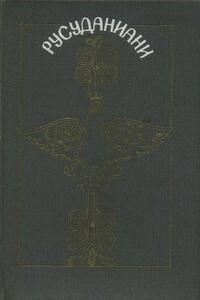Son of Holmes | страница 14
There was, in fact, only one event of importance, of real significance, attached to this locale, and that was the arrival, early the previous fall, of Auguste Lupa.
Obviously, that wasn’t his real name, but no one had any idea of what it really was, so it didn’t matter. In Belgrade, he’d been Julius Adler. At Sarajevo, he was Cesar Mycroft. In Milan . . . but the list is immaterial, though impressive. Always a reference to one of the Caesars in one of the names—perhaps some family connection. We’d followed him when he broke out of jail in Belgrade a year ago June, lost him briefly, found him again in Geneva, trailing him to Valence. When he actually took a job here, I’d been sent.
Lupa was the unparalleled genius among the agents of Europe and he seemed to work for himself, for no government acknowledged him. As far as we knew, he’d been approached before, by us as well as the British and Russians, and to all he’d feigned an absolute innocence of any knowledge of espionage or even of the affairs of politics. His loves, he said, included only food and beer. In spite of his protestations of naivete, he’d been jailed for espionage in three countries and had turned over quantities of information, always by leaving a bag loaded with papers in a locker somewhere. The material was always typed, never on the same machine, never with the same paper, almost never in the same language, and always frighteningly exact. He was the best, and he’d been trying to discover the brains behind Europe’s assassinations for two years. He obviously wanted us here, or he wouldn’t have let himself be followed, and yet he’d made no overtures of any sort and had forced me to contact him. It was barely possible that he didn’t suspect my associations, but it was probable that even as I sat down across from him, he was cataloguing everything he knew about me, deciding the time was right, and letting me set the tone of our relationship.
During lunch, I had asked him if he’d mind if a friend of mine were present at the next day’s meeting, and he’d said no. Accordingly, I invited Marcel Routier, and he arrived early the next morning, a little past nine o’clock. We sat outside in the sun for our coffee.
“He, of course, knows us,” he said.
I shrugged. “It’s nearly certain, but he may have been so attuned to his own inquiries that they haven’t crossed ours yet. In any case, we’ll see before long.”
He sipped at his coffee, took a bite of Fritz’s blueberry muffin, and looked out over the grounds. His hair was the color of straw, which made it look as though there was less of it than there was. It was a bit too long for my taste, just touching the tops of his ears, which he said was to make up for the lack on top. This morning he was wearing white pants and shoes, and a high-collared blue shirt, and, except possibly for his face, he looked much more the dandy than the spy. A lot of women had found him attractive, but I couldn’t understand why. Tania had said he had classic features, but too many of them. His forehead and nose commanded his face except when he smiled, at which time his teeth commanded everything. He was smiling now.

